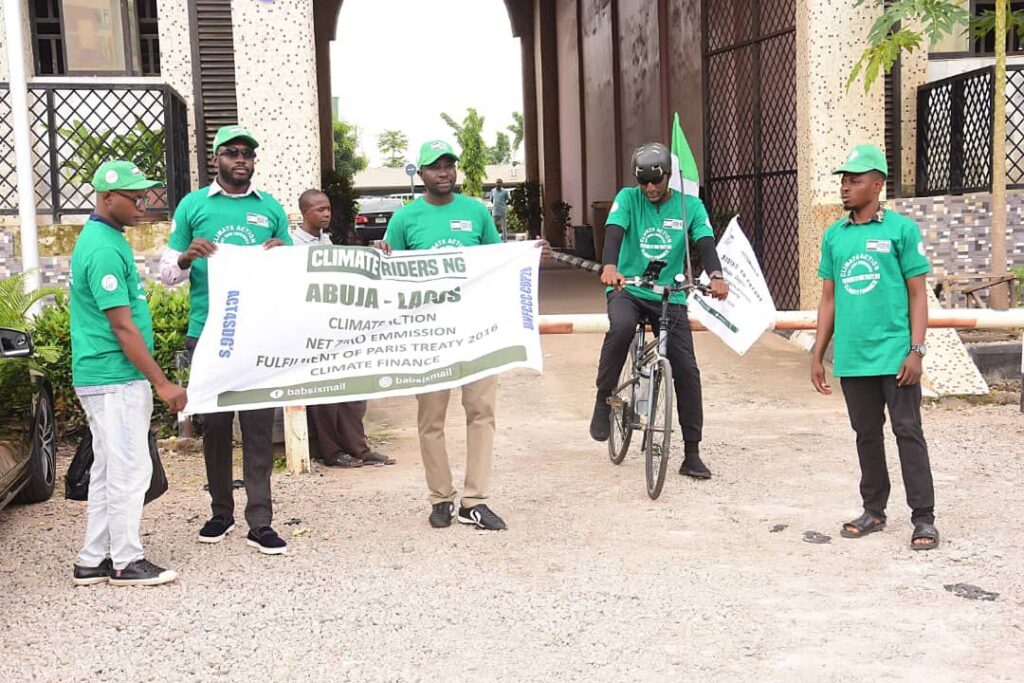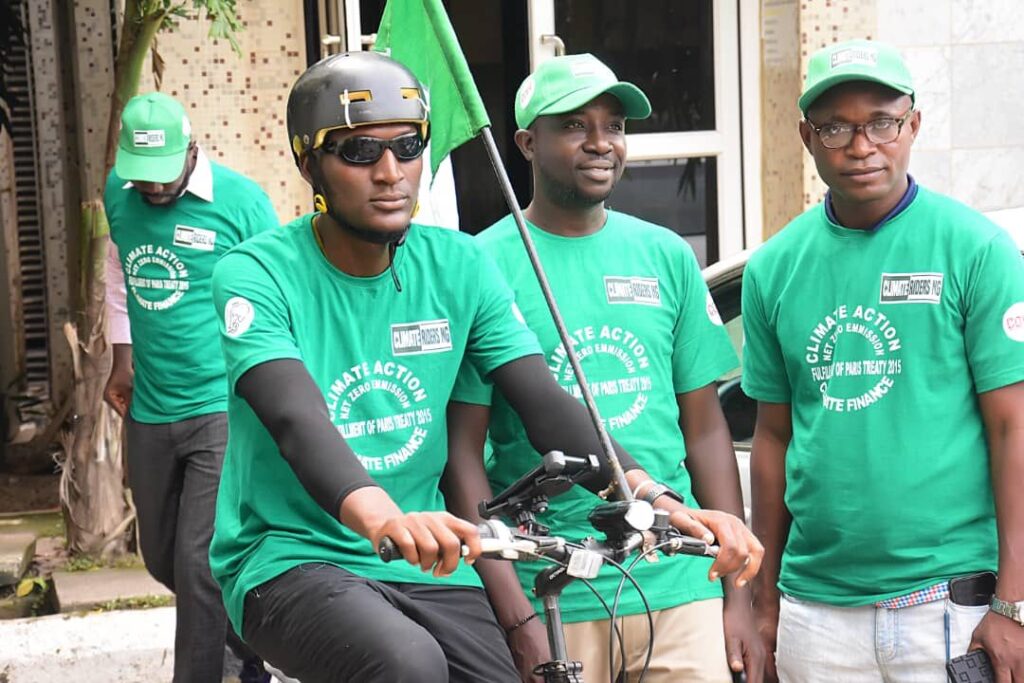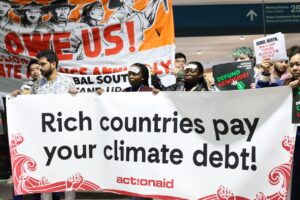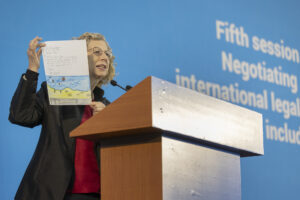
Members of Climate Rider’s NG in their outreach held recently. PHOTOS: ABISOGUN MOBOLAJI AKINBOLANLE
BY ADIGUN OLADITI NOSIMOT
Founder of Climate Rider’s NG , Ismaila Babatunde, has outlined the profound environmental challenges facing Nigeria and the world at large.
In a press statement, Babatunde said that there is an urgent need for the country to address climate change so that the nation won’t face the dire consequences.
Babatunde’s statement began with a stark observation: the global rise in temperatures, coupled with erratic weather patterns and the alarming melting of polar ice caps, has taken a toll on our planet.
The depletion of the ozone layer, shrinking rivers, dwindling fertility of the land, fading forests, and the transformation of plant areas into deserts are all clear indicators of the perilous state of our environment.
This climate catastrophe is further exacerbated by desertification and droughts, which continue to claim fertile lands, all while carbon emissions continue to rise.
The Climate Rider’s NG, a group of passionate environmental and climate change campaigners, has taken up the mantle to address these pressing concerns.
Their mission is multifaceted, encompassing raising public awareness about climate change, implementing mitigation and adaptation strategies to empower local communities, promoting green skills, and advocating for the phasing out of fossil fuels to achieve net-zero emissions—a commitment in line with the Paris Agreement of 2015.
To make a tangible impact, the Climate Rider’s NG is embarking on an extraordinary cycling expedition from Abuja to Lagos, traversing seven states: Kogi, Ondo, Ekiti, Osun, Oyo, Ogun, and Lagos.
This remarkable journey is a testament to their unwavering dedication to achieving net-zero emissions in Nigeria by 2060.
The consequences of the climate crisis, as Babatunde stressed, have dire implications for society, leading to widespread hunger, loss of livelihoods, increased poverty, and the escalation of conflicts, particularly between farmers and herders. This, in turn, has contributed to insecurity and a breakdown of unity and diversity.

Babatunde emphasized the need to address these pressing issues to align with UN Sustainable Development Goals, specifically Goal 1 (Zero Hunger) and Goal 2 (No Poverty).
To ensure food sufficiency, it is imperative to collectively tackle the climate change crisis through mitigation and adaptation measures, increased climate finance, and technology-driven energy transition.
He underscored the urgency of the situation, highlighting that this endeavour is not about an individual but concerns the welfare and future of all people, including generations yet unborn.
Babatunde called for community sensitization, public awareness, and the commitment of political leaders to address these issues effectively.
During his journey, Babatunde plans to create public awareness and engage with local governments, state governors, and traditional institutions to foster greater support and understanding for the cause.
As a precursor to COP28, the Climate Rider’s NG anticipates developed nations to substantially increase climate finance to developing nations, particularly in Africa, where the impact of climate change is deeply felt.
He concluded his statement by emphasizing that Africa, and by extension Nigeria, is disproportionately vulnerable to the climate crisis, despite contributing only 4% of global carbon emissions.
At the upcoming UNFCCC 28 conference, Babatunde called for action to fulfil the Paris Agreement treaty of 2015, emphasizing the need for tangible results in capacity building, financing, and technology to combat the global climate crisis.
In his final plea, Babatunde invoked a sense of hope and urged all Nigerians to unite in the face of this climate crisis, including those in the creative and entertainment industries, to amplify awareness through various forms of expression.
He solicited support from fellow Nigerians and called for collective action to combat climate change, inviting everyone to follow his journey, engage through social media, and join the movement.






